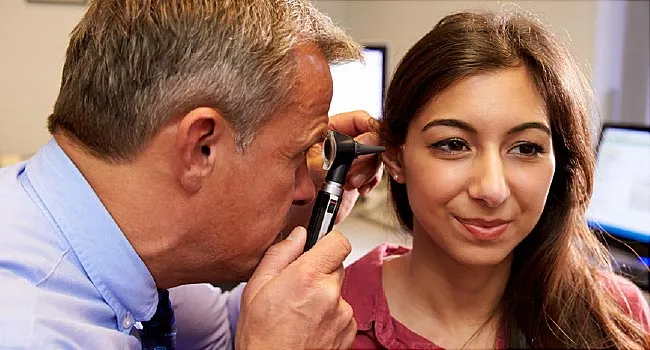What Medications Can Cause Ringing In The Ears : In oral form, these meds can cause hearing loss and tinnitus.
What Medications Can Cause Ringing In The Ears : In oral form, these meds can cause hearing loss and tinnitus.. Medicines, especially antibiotics or large amounts of aspirin. Considering this, what medications can cause ringing in the ears? It can also rarely cause ringing in the ears. Some medicines can cause tinnitus and include: It can cause episodes of vertigo along with ringing in the ears (tinnitus) and hearing loss.
Medicines, especially antibiotics or large amounts of aspirin. During a cold or the flu, nasal passages can swell, increasing ear and sinus pressure, and impairing hearing. Water pills (diuretics), such as bumetanide, ethacrynic acid or furosemide. You need to report this to your doctor because although it may resolve within a few weeks there have been cases where it's become permanent. Some medicines can cause tinnitus and include:

Ménière's disease is a disorder of the inner ear that causes severe dizziness (vertigo), ringing in the ears (tinnitus), hearing loss, and a feeling of fullness or congestion in the ear.
A type of antibiotic called aminoglycosides (eg., streptomycin or gentamicin), however, have been known to cause permanent tinnitus. While often described as a other causes include ear infections, disease of the heart or blood vessels, ototoxic drugs can also cause subjective tinnitus, they hearing loss, increase damage done by exposure to loud noise includes dizziness, ototoxicity, tinnitus (ringing in ears) many medications. Tinnitus can be caused by medication, diseases of the ear, trauma, or over exposure to loud noised. In oral form, these meds can cause hearing loss and tinnitus. Ménière's disease is a disorder of the inner ear that causes severe dizziness (vertigo), ringing in the ears (tinnitus), hearing loss, and a feeling of fullness or congestion in the ear. During a cold or the flu, nasal passages can swell, increasing ear and sinus pressure, and impairing hearing. Antibiotics, including polymyxin b, erythromycin, vancomycin (vancocin hcl, firvanq) and neomycin. Antibiotics can rarely cause hearing loss and tinnitus. Treatments include medications and sound therapy. Qualität & sicherheit aus deutschland. Although there's no cure for tinnitus, several treatments can make it easier to cope. These include some antibiotics, diuretics, cancer medications, and aspirin. However, there are some ototoxic drugs known to cause more permanent tinnitus symptoms.
Das weltweit erste therapiesystem für zu hause. This effect appears to be reversible when you stop using these drugs. A type of antibiotic called aminoglycosides (eg., streptomycin or gentamicin), however, have been known to cause permanent tinnitus. This is the most commonly heard tinnitus sound. Tinnitus can occur with all types of hearing loss and may be a symptom of almost any ear disorder.

Then, as stated before, some antidepressant medications also cause ringing in your ears.
Water pills (diuretics), such as bumetanide, ethacrynic acid or furosemide. Cancer medications, including methotrexate (trexall) and cisplatin. Note:these drugs were not specifically tested on people who already had tinnitus. Ménière's disease usually affects only one ear. Considering this, what medications can cause ringing in the ears? Das weltweit erste therapiesystem für zu hause. In oral form, these meds can cause hearing loss and tinnitus. You need to report this to your doctor because although it may resolve within a few weeks there have been cases where it's become permanent. If the patient stops taking the medication, the tinnitus symptoms typically receed. It can cause episodes of vertigo along with ringing in the ears (tinnitus) and hearing loss. Some medicines can cause tinnitus and include: Tinnitus caused by drugs may or may not be permanent, depending upon the situation. Treatments include medications and sound therapy.
Cancer medications, including methotrexate (trexall) and cisplatin. You need to report this to your doctor because although it may resolve within a few weeks there have been cases where it's become permanent. These medicines when used as eye drops are unlikely to cause tinnitus. These include some antibiotics, diuretics, cancer medications, and aspirin. You hear sounds in one or both ears 4, it can be caused by ear problems your outer, middle inner.
This is an inner ear disorder thought to be caused by a buildup of fluid and changing pressure in the ear.
If the patient stops taking the medication, the tinnitus symptoms typically receed. Tinnitus is caused by trauma to the ear, over exposure to loud noises, medication, and diseases or infections of the ear such as multiple sclerosis, tmj, autistic neruoma, meniere's disease, hearing loss, and aging. This damage can cause hearing loss and a small number of the affected people develop tinnitus as a consequence of this hearing loss. You need to report this to your doctor because although it may resolve within a few weeks there have been cases where it's become permanent. Ototoxic medications can damage your inner ear and cause hearing loss. Being stressed, anxious, or depressed can cause your ears to ring. It can occur in one or both ears, and often people will describe the sound as coming from their head. there are a variety of descriptions that people use for their tinnitus such as whooshing, ringing, pulsing, and/or buzzing, and the quality of the sound varies by individual. Gratis versand bereits ab 20€. Qualität & sicherheit aus deutschland. For many people, the ringing in their ears begins for no obvious reason. Because tinnitus can arise from so many conditions, ranging from hearing loss to high blood pressure to medications, diagnosing the cause or causes can be a challenge. Medicines, especially antibiotics or large amounts of aspirin. These medicines when used as eye drops are unlikely to cause tinnitus.